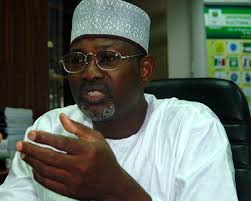A
abujagirl
Guest
The Independent National Electoral Commission (INEC) on Monday said the 2011 general elections in Nigeria recorded the least number of election petitions with a total of 733.
The Chairman of INEC, Prof. Attahiru Jega said this at a two-day international conference held in Abuja with the theme, ''Emerging Electoral Jurisprudence in Africa''.
He said that the number of petitions recorded in the 2007 general elections exceeded 3,000.
Jega was represented by a National Commissioner, Dr Ishmael Igbani, at the conference organised by ‘The Electoral Institute’ (TEI), an organ of INEC in collaboration with the Ford Foundation.
He gave the breakdown of the petitions in 2011 to include two petitions for presidential election, governorship 53, Senatorial 90, House of Representatives 198, State Houses of Assembly 390.
According to him, currently, the widely held view is that it is the judiciary, rather than the voters that determines electoral outcomes in Nigeria.
''The judiciary, beginning from electoral tribunals to the Supreme Court, has had to decide on sensitive and prominent gubernatorial and presidential cases, respectively”, he said.
Jega said that presidential elections litigation came with their peculiar challenges, saying ''the 2011 Presidential Election Supreme Court case resulted in majority and minority decisions.
''Both decisions are quite incisive and raise many contentious and unresolved questions’’.
Jega said that in a good system, there must be an effective dispute resolution mechanism, rather than resorting to judicial process.
He said that electoral and political litigation had, however, turned out to be expensive and time consuming.
''Perhaps a rethink and remodeling has become necessary to explore the use of Alternative Dispute Resolution (ADR) mechanism as an alternative to litigation. INEC believes that this is viable and the upgrading of ADR Unit to a Directorate and the modest success it has achieved has vindicated this position,’’ he said.
The Director-General of TEI, Prof. Abubakar Momoh, said that the conference was organised to find better alternative to election litigation considering the huge cost of electioneering and electoral litigation.
''We must have a way to reduce this and to improve the trust and credibility of ballot in this country. This is what the conference is about,’’ Momoh said.
He expressed the hope that with the conference, the judiciary would be less politicised, address the fact and evidence and deliver justice to those who truly deserve it or won at the ballot.
In his address, the West Africa Representative, Ford Foundation, Mr Innocent Chukwuma, said the important of the conference was underscored by the observation of the presidential election petitions in Africa
''They are being determined in the court chambers where judges and justice sit to salvage badly organised elections, relying on electoral jurisprudence that places disproportionate burden of proof on petitioners,” he said.
This, he added, was done often with scarcely resourced position of the candidates and their parties.
He expressed hope that the conference would contribute in finding solutions to the intractable problems around organising credible elections in Africa, starting from Nigeria.
#INEC #Jega

The Chairman of INEC, Prof. Attahiru Jega said this at a two-day international conference held in Abuja with the theme, ''Emerging Electoral Jurisprudence in Africa''.
He said that the number of petitions recorded in the 2007 general elections exceeded 3,000.
Jega was represented by a National Commissioner, Dr Ishmael Igbani, at the conference organised by ‘The Electoral Institute’ (TEI), an organ of INEC in collaboration with the Ford Foundation.
He gave the breakdown of the petitions in 2011 to include two petitions for presidential election, governorship 53, Senatorial 90, House of Representatives 198, State Houses of Assembly 390.
According to him, currently, the widely held view is that it is the judiciary, rather than the voters that determines electoral outcomes in Nigeria.
''The judiciary, beginning from electoral tribunals to the Supreme Court, has had to decide on sensitive and prominent gubernatorial and presidential cases, respectively”, he said.
Jega said that presidential elections litigation came with their peculiar challenges, saying ''the 2011 Presidential Election Supreme Court case resulted in majority and minority decisions.
''Both decisions are quite incisive and raise many contentious and unresolved questions’’.
Jega said that in a good system, there must be an effective dispute resolution mechanism, rather than resorting to judicial process.
He said that electoral and political litigation had, however, turned out to be expensive and time consuming.
''Perhaps a rethink and remodeling has become necessary to explore the use of Alternative Dispute Resolution (ADR) mechanism as an alternative to litigation. INEC believes that this is viable and the upgrading of ADR Unit to a Directorate and the modest success it has achieved has vindicated this position,’’ he said.
The Director-General of TEI, Prof. Abubakar Momoh, said that the conference was organised to find better alternative to election litigation considering the huge cost of electioneering and electoral litigation.
''We must have a way to reduce this and to improve the trust and credibility of ballot in this country. This is what the conference is about,’’ Momoh said.
He expressed the hope that with the conference, the judiciary would be less politicised, address the fact and evidence and deliver justice to those who truly deserve it or won at the ballot.
In his address, the West Africa Representative, Ford Foundation, Mr Innocent Chukwuma, said the important of the conference was underscored by the observation of the presidential election petitions in Africa
''They are being determined in the court chambers where judges and justice sit to salvage badly organised elections, relying on electoral jurisprudence that places disproportionate burden of proof on petitioners,” he said.
This, he added, was done often with scarcely resourced position of the candidates and their parties.
He expressed hope that the conference would contribute in finding solutions to the intractable problems around organising credible elections in Africa, starting from Nigeria.
#INEC #Jega


